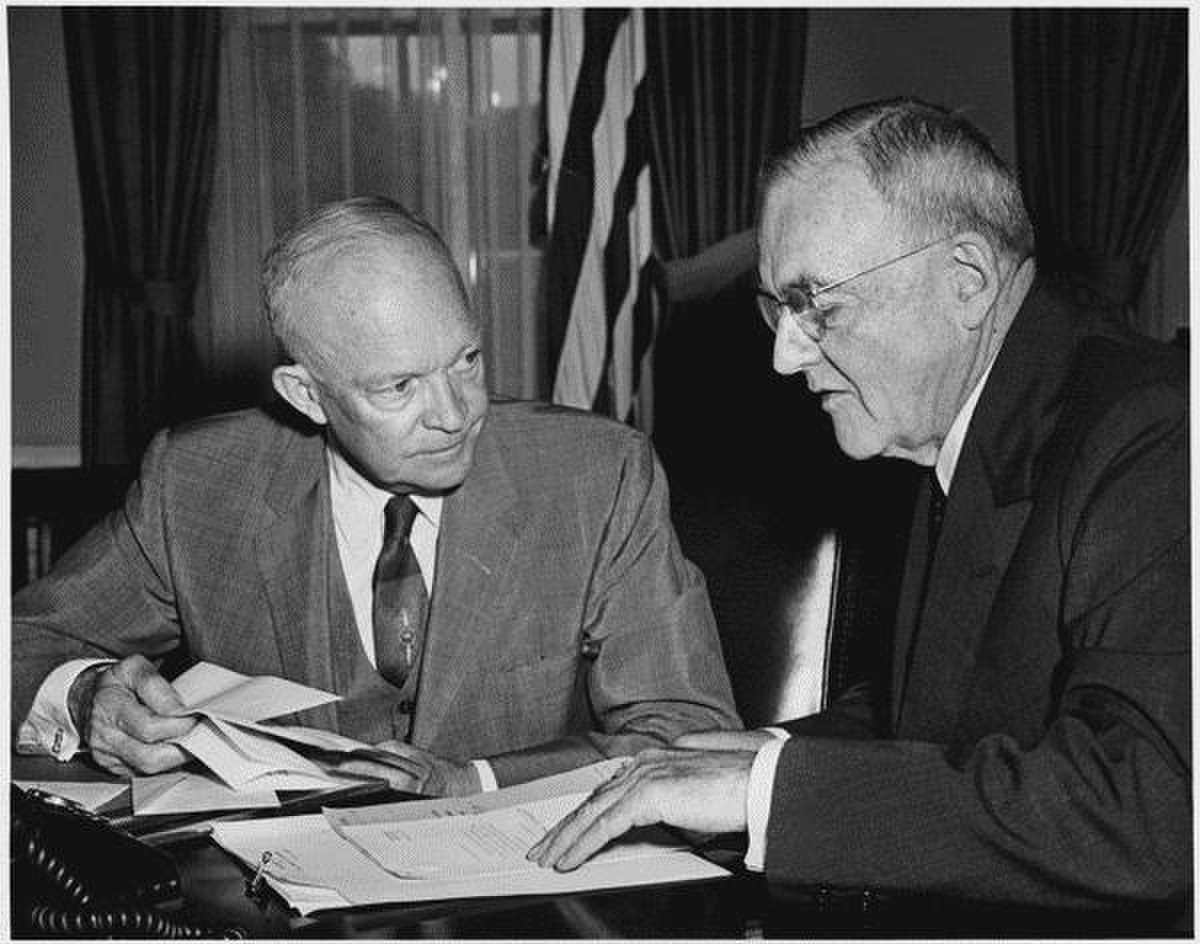
Competition in the Third World
GuatemalaNationalist movements in some countries and regions, notably Guatemala, Indonesia and Indochina, were often allied with communist groups or otherwise perceived to be unfriendly to Western interests. In this context, the United States and the Soviet Union increasingly competed for influence by proxy in the Third World as decolonization gained momentum in the 1950s and early 1960s. Both sides were selling armaments to gain influence. The Kremlin saw continuing territorial losses by imperial powers as presaging the eventual victory of their ideology.
The United States used the Central Intelligence Agency (CIA) to undermine neutral or hostile Third World governments and to support allied ones. In 1953, President Eisenhower implemented Operation Ajax, a covert coup operation to overthrow the Iranian prime minister, Mohammad Mosaddegh. The popularly elected Mosaddegh had been a Middle Eastern nemesis of Britain since nationalizing the British-owned Anglo-Iranian Oil Company in 1951. Winston Churchill told the United States that Mosaddegh was "increasingly turning towards Communist influence." The pro-Western shah, Mohammad Reza Pahlavi, assumed control as an autocratic monarch. The shah's policies included banning the communist Tudeh Party of Iran, and general suppression of political dissent by SAVAK, the shah's domestic security and intelligence agency.
In Guatemala, a banana republic, the 1954 Guatemalan coup d'état ousted the left-wing President Jacobo Árbenz with material CIA support. The post-Arbenz government—a military junta headed by Carlos Castillo Armas—repealed a progressive land reform law, returned nationalized property belonging to the United Fruit Company, set up a National Committee of Defense Against Communism, and decreed a Preventive Penal Law Against Communism at the request of the United States.
The non-aligned Indonesian government of Sukarno was faced with a major threat to its legitimacy beginning in 1956 when several regional commanders began to demand autonomy from Jakarta. After mediation failed, Sukarno took action to remove the dissident commanders. In February 1958, dissident military commanders in Central Sumatra (Colonel Ahmad Husein) and North Sulawesi (Colonel Ventje Sumual) declared the Revolutionary Government of the Republic of Indonesia-Permesta Movement aimed at overthrowing the Sukarno regime. They were joined by many civilian politicians from the Masyumi Party, such as Sjafruddin Prawiranegara, who were opposed to the growing influence of the communist Partai Komunis Indonesia. Due to their anti-communist rhetoric, the rebels received arms, funding, and other covert aid from the CIA until Allen Lawrence Pope, an American pilot, was shot down after a bombing raid on government-held Ambon in April 1958. The central government responded by launching airborne and seaborne military invasions of rebel strongholds at Padang and Manado. By the end of 1958, the rebels were militarily defeated, and the last remaining rebel guerilla bands surrendered by August 1961.
In the Republic of the Congo, newly independent from Belgium since June 1960, the Congo Crisis erupted on 5 July leading to the secession of the regions Katanga and South Kasai. CIA-backed President Joseph Kasa-Vubu ordered the dismissal of the democratically elected Prime Minister Patrice Lumumba and the Lumumba cabinet in September over massacres by the armed forces during the invasion of South Kasai and for involving Soviets in the country. Later the CIA-backed Colonel Mobutu Sese Seko quickly mobilized his forces to seize power through a military coup d'état, and worked with Western intelligence agencies to imprison Lumumba and hand him over to Katangan authorities who executed him by firing squad.
